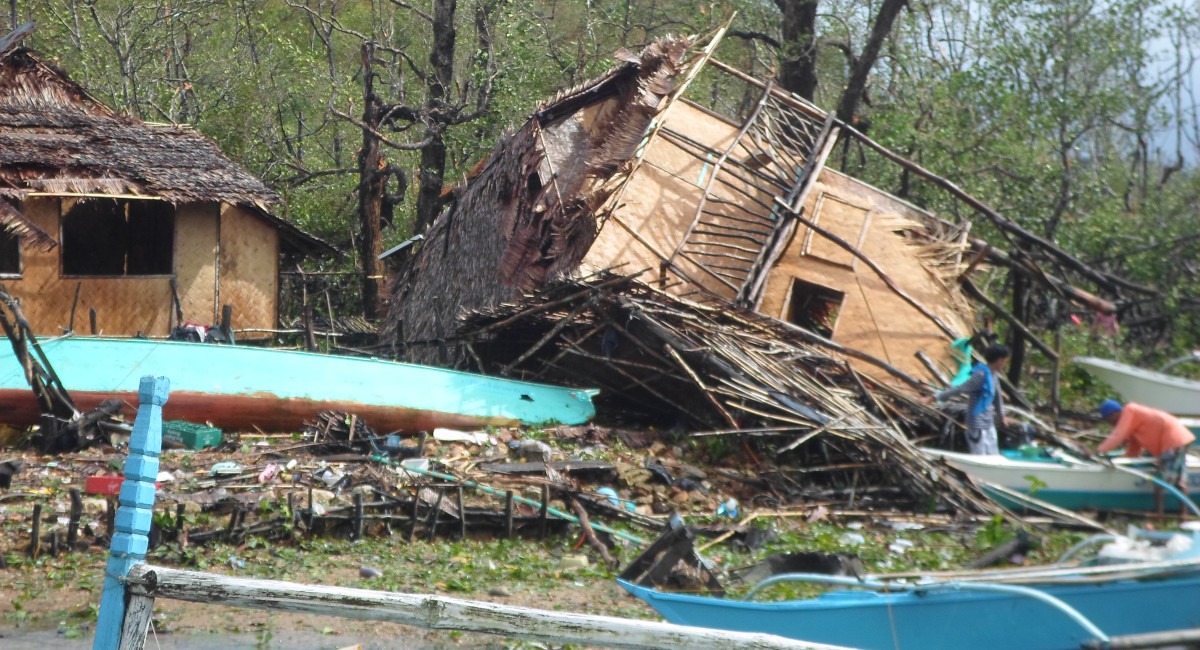
What is the message and call of Laudate Deum for our context in Asia Pacific today? This was the question that guided the online panel discussion on 8 November hosted by the Reconciliation with Creation network in collaboration with Jesuit Communications (Jescom) Philippines and moderated by Jescom Executive Director Fr Nono Alfonso SJ.
The panel included Julie Edwards, CEO of Jesuit Social Services in Australia; Mary Khine, a social development worker from Myanmar; Fr Sunu Hardiyanta SJ, former provincial of the Indonesian Province; and Fr Jett Villarin SJ, director of the Manila Observatory.
Pope Francis emphasises in his latest apostolic exhortation that everything is connected and that “what happens in one part of the world has repercussions over the entire planet”. This interconnectedness was evident when the speakers each shared briefly about the ecological situation in their countries. They raised common climate problems affecting Australia, Myanmar, Indonesia, and the Philippines, such as increasing land and sea temperatures, extreme weather conditions leading to drought or flood, and threats to food security. Incidentally, 8 November held the significance of being the 10th anniversary of Typhoon Haiyan, known in the Philippines as Yolanda, which ravaged parts of the country.
Delving deeper into this context, they shared key points from Laudato sí, published eight years ago in 2015. The document emphasised that the environmental crisis is not only a physical or technical issue but also involves social and spiritual aspects. The speakers stressed that personal conversion only makes sense when it is applied in practice, in businesses, institutions, and communities, and while collective action is important, an enabling environment is equally crucial in effecting changes in behaviour and culture.
Fr Hardiyanta shared Pope Francis’ frustration with the inadequate response to Laudato sí and the ecological crisis, despite the fact that “the world in which we live is collapsing and may be nearing the breaking point”. For Fr Sunu, individual action is important. “We need policies, yet we still have to move as individuals. Our ‘small movements’ will help inspire others,” he said.
Mary furthered Fr Hardiyanta’s point, saying that different people have different roles to play, and while we may be unconscious of it, all of our actions have ripple effects on communities. She recalled Pope Francis’ example of the Covid-19 pandemic: “Something that happens in another part of the planet will have an impact on the whole world.”
Despite difficulties in addressing the climate crisis, Fr Villarin reminded the audience that the Pope remains hopeful in Laudate Deum. “He seems desperate, but then towards the end, he says to lose hope is suicide. It’s only going to harm us if we just say there’s no hope. We have to be wary of self-fulfilling prophecies. If we say that this planet is hopeless, we will really not do much to change things,” he shared. Fr Villarin is thankful for interventions from people like Pope Francis who work outside the field of environmental science, as they are what inspire the movement.
Edwards brought up the document’s confrontation with climate crisis deniers and how the Pope counters false information. Underscoring the earlier points made, she called for an examination of where the investments of environmental organisations are. “Have we divested from fossil fuels? Because [Pope Francis] is very strong about that in Laudate Deum. And I think that’s when the rubber hits the road—that we actually have to look at ourselves.” She reminded the audience that Pope Francis calls for solutions that are “drastic, intense, and involve a commitment from us all.”
The second half of the forum focused on concrete steps Laudate Deum may motivate in Asia Pacific.
In Myanmar, Mary shared that civil society organisations are at the forefront of addressing the climate crisis given that, since the coup, the country has been left without credible authorities. Local communities are being called to combat illegal mining and logging, to raise awareness on the urgency of the climate crisis, especially among students, and to be empowered in the good governance of natural resources. Since people are struggling to have their basic needs met, the environmental movement is not prioritised locally. However, many youth groups remain actively involved in advocacy.
In Indonesia, the government has been pushing strongly for economic progress. This is a good thing in itself, said Fr Sunu, but he also fears that it could become an uncontrolled movement that Pope Francis described as leading to irreversible damage to the environment when the sole focus is on economic growth. He said Jesuits must promote ecological literacy and combat the public’s lack of awareness of the climate crisis.
In the wider Asia Pacific region, Fr Villarin noted the unique and diverse cultural landscape. He views addressing the ecological crisis as an opportunity for interreligious collaboration, with different faiths and notions of God serving as sources of inspiration for climate action. Fr Villarin also underscored Laudate Deum’s reference to the carbon footprint of Western cultures, suggesting that comparing our own footprint with this can guide us away from a consumerist and profit-driven economy.
In our own Jesuit conference, Edwards acknowledged the necessity for a deeper understanding of humanity’s interconnectedness with nature but noted that this understanding must also translate into tangible outcomes. She advocates for a holistic view of organisational and business practices concerning environmental solutions and stresses that taking action alongside personal conversion is imperative for addressing social and environmental justice.
The consensus among all the speakers was clear: to live out our commitment and love for God, for our common home, and for one another, drastic climate action is needed now. [Cesca Lee/JCAP Reconciliation with Creation]

